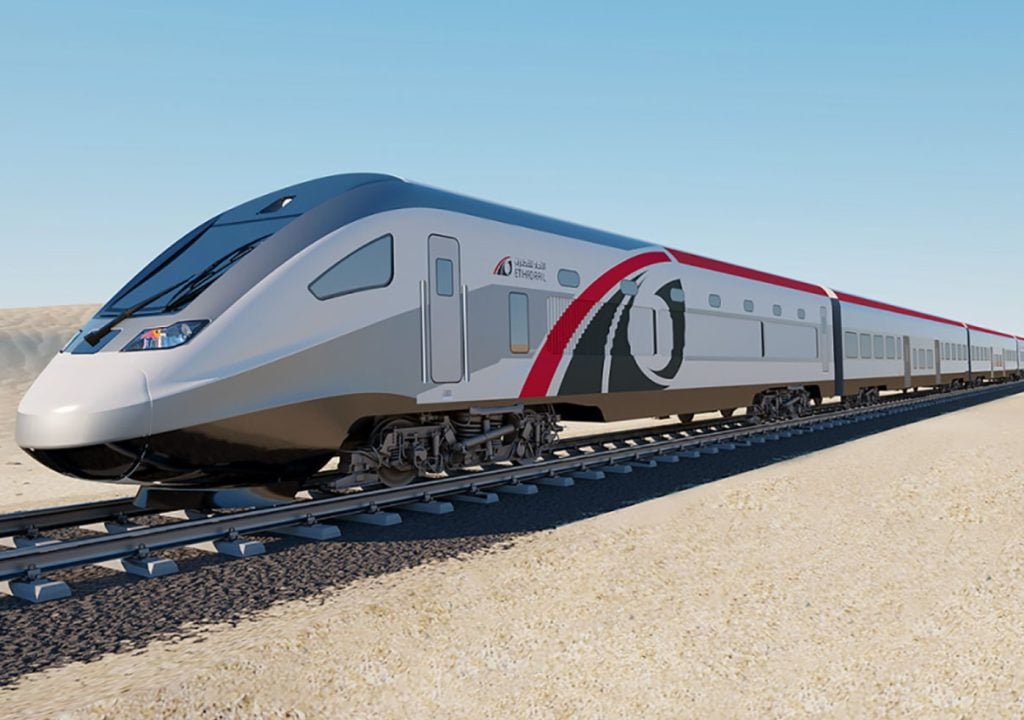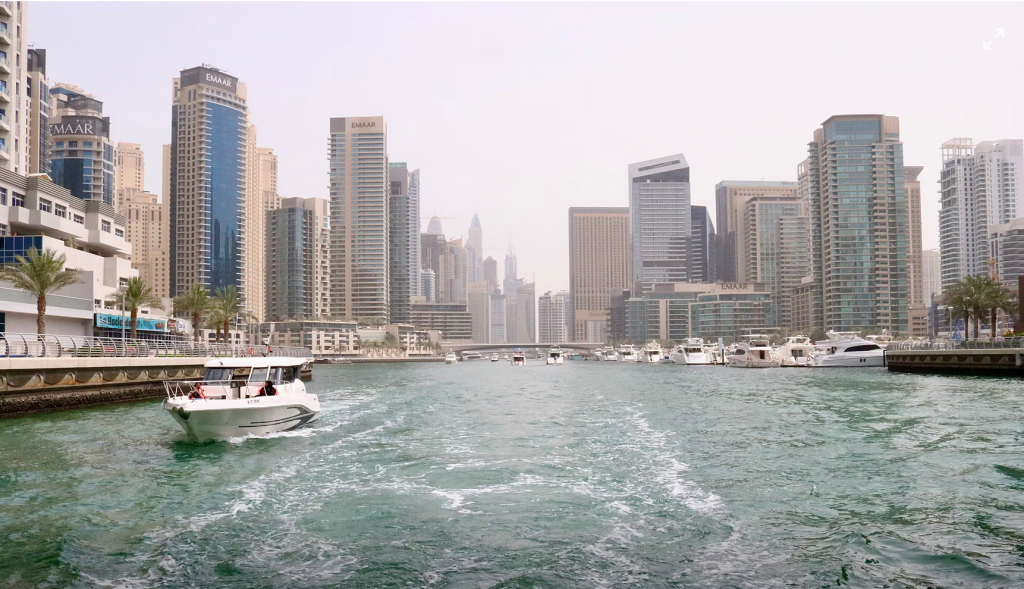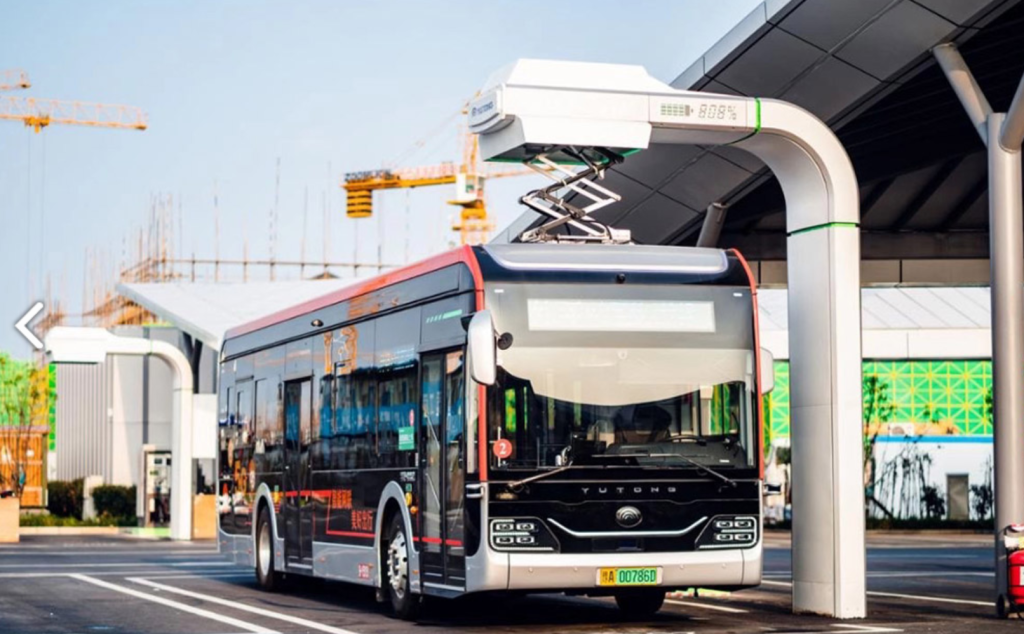The Middle East is entering a transformative phase in transportation, where improved intercity rail, bus networks, and futuristic mobility solutions are enhancing how people travel within and across cities. These developments, supported by visionary infrastructure projects, not only boost connectivity but also promote sustainability and efficiency. Here’s the latest on intercity travel in the Middle East.
Rail travel: Increased connectivity

The Middle East is experiencing a rail renaissance, with ambitious projects transforming regional and intercity travel. These rail networks promise faster, more efficient connectivity across cities and borders, supporting economic growth and tourism.
- Etihad Rail, UAE: The Etihad Rail network is a flagship project in the UAE, set to redefine travel across the emirates. Once fully operational, passengers will travel between Dubai and Abu Dhabi in under an hour, a significant improvement over the current commute. This network will link key cities like Al Ain, Sharjah, and Fujairah, making it a game-changer for regional connectivity.
- Gulf Cooperation Council (GCC) Rail network: Plans for a GCC-wide rail system are in the pipeline, aiming to connect the UAE, Saudi Arabia, Oman, Bahrain, Qatar, and Kuwait. This ambitious project will strengthen economic ties, improve logistics, and provide a seamless intercountry travel experience by 2030.
- Riyadh Metro, Saudi Arabia: The newly launched Riyadh Metro boasts driverless technology and six interconnected lines that ease congestion in one of the region’s busiest cities. Its future expansion aims to connect suburban areas to the city center, offering commuters an efficient alternative to driving.
- Oman’s rail projects: Oman is progressing on plans to establish a rail line that links it to Saudi Arabia and the UAE. This initiative is part of the country’s strategy to diversify its economy and strengthen tourism. Most recently it has secured $1.5bn in financing to build the 238km railway network.
Read more:
- Etihad Rail and Oman Rail launch landmark Abu Dhabi-Oman link
- Zip between Abu Dhabi and Dubai in under an hour
- All aboard! New highspeed rail link planned for Kuwait and Saudi Arabia
Bus networks: Expanding reach and reliability

Modernised bus services are providing dependable and comfortable travel options across the region. With upgraded fleets and expanded routes, buses are bridging gaps in public transport networks and improving daily commutes.
- Dubai’s Modern Bus Fleet: Dubai added over 600 new buses to its fleet in July, featuring eco-friendly technologies and improved passenger comfort. These buses are vital for commuters traveling between key hubs, such as Dubai Marina, Downtown Dubai, and the Expo City.
- Intercity Buses in Saudi Arabia: Saudi Arabia’s intercity bus services are being modernised to improve connectivity between major cities like Riyadh, Jeddah, and Dammam. The introduction of premium buses with Wi-Fi and other amenities enhances the travel experience. On 5 December, the first hydrogen-powered bus capable of travelling 635km with up to 45 passengers on one charge went for its trial run in Saudi Arabia.
- Jordan’s Amman Bus Rapid Transit (BRT): Amman is implementing a BRT system to streamline urban and intercity travel and in August this year, expanded to 20 new buses on its Amman-Zarqa route. With dedicated lanes and reliable schedules, this project is expected to become a model for sustainable public transport in the region.
Air travel and emerging technologies
Aviation in the Middle East continues to soar as a sector, with both traditional and futuristic innovations taking flight. For intercity travel, and regional flights there have been exciting developments so far.
- Flying taxis in the UAE (back to the future anyone?): The UAE is pioneering the concept of flying taxis, with plans for aerial vehicles to shuttle passengers across key locations in Dubai and Abu Dhabi. This futuristic mode of transport aims to minimise road congestion while offering a breathtaking travel experience. After unveiling their plans in London in October this year, commuters and tourists could expect this to be reality by 2026.
- Regional airlines’ growth: Carriers like Emirates, Qatar Airways, and Saudia are not only expanding international routes but also enhancing regional connectivity with more frequent and affordable flights. Low-cost carriers such as Flydubai and Air Arabia provide budget-friendly options for intercity travel.
Maritime transport: Harnessing the Gulf waters

The region’s maritime transport is offering scenic and practical alternatives for intercity travel. Water taxis and ferry systems are connecting coastal cities while enhancing the travel experience with stunning Gulf views.
- Dubai water taxis: Dubai’s water taxi system offers a scenic way to navigate the city’s coastal areas and connect with nearby emirates. These taxis are a favourite among tourists and residents seeking an alternative to road travel.
- Ferry services in Oman: Oman’s ferry system connects its coastal cities and islands, offering an affordable and picturesque mode of intercity transport, particularly between Muscat and Khasab.
Electric and autonomous vehicles: Sustainability in focus

The Middle East is embracing the green revolution with the introduction of electric and autonomous vehicles. These innovations are redefining urban mobility, aligning with sustainability goals across the region.
- E-taxis across the region: Electric taxis are becoming increasingly common in cities like Dubai, Riyadh, and Doha, contributing to greener urban environments. Initiatives to electrify public transport are aligned with national sustainability goals.
- Autonomous vehicles in Qatar: As part of its smart city initiatives, Qatar is testing self-driving shuttles and buses, which are designed to showcase cutting-edge urban technology. In February, driverless buses embarked on a nine-stop loop around Qatar’s Education City, from Qatar National Library Metro Station to Northwestern University. The test involved students to improve their commuting experience and boost engagement in autonomous driving technologies.
- Driverless taxis in Abu Dhabi: Uber, in collaboration with China’s WeRide, has launched the Middle East’s first commercial driverless mobility service in Abu Dhabi. Initially operating in areas like Saadiyat Island, Yas Island, and routes to and from Zayed International Airport, Tawasul, a local transportation company, will manage the WeRide vehicles on the Uber platform. Uber riders can request either UberX or Uber Comfort, with eligible trips being matched to a WeRide autonomous vehicle (AV). Each vehicle will have a human safety operator at the wheel, though Uber plans to phase out safety drivers by 2025, as shared by Noah Zych, Uber’s global head of autonomous mobility and delivery operations, in an interview with The National.
Cycling and micro mobility

Cycling and micromobility options are gaining traction in Middle Eastern cities, offering convenient and eco-friendly solutions for short-distance travel. Bike lanes, e-scooters, and shared mobility programs are helping to reshape urban transit.
- Bike-friendly cities: Efforts to integrate cycling into urban planning are visible in cities like Dubai, which boasts a network of dedicated bike lanes and rental stations. Riyadh and Doha are also investing in cycling infrastructure to promote healthier and eco-friendly transport options.
- E-scooters and shared mobility: E-scooters and bike-sharing programs are becoming popular in the region’s urban centers, providing short-distance transport options that complement public transit systems. Oman launched its electric scooter program trial earlier this year in an effort to reduce traffic and emissions.
A future built on connectivity
The Middle East is rapidly evolving into a transport hub with world-class options for intercity travel. From cutting-edge rail systems to futuristic flying taxis and sustainable urban mobility solutions, the region is setting benchmarks in modern transportation. Whether you’re commuting within a city or exploring neighboring countries, these developments promise a seamless and efficient travel experience.



